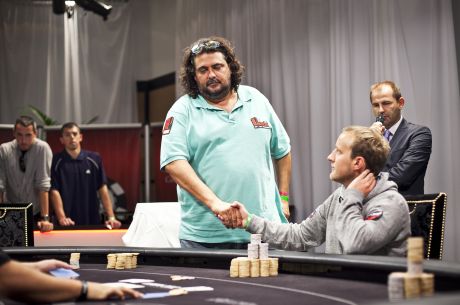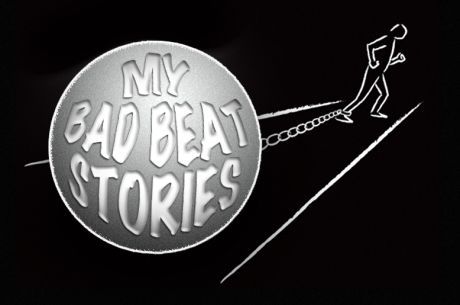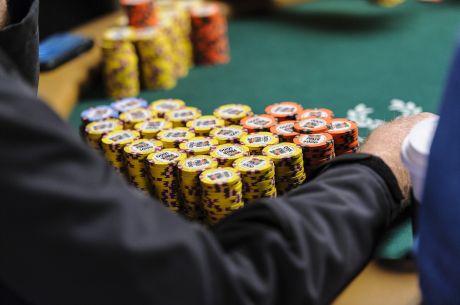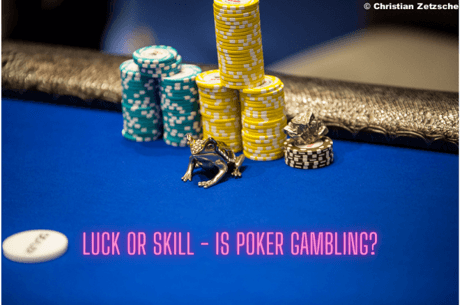Psychological Habits of Successful Poker Players: Mental Toughness
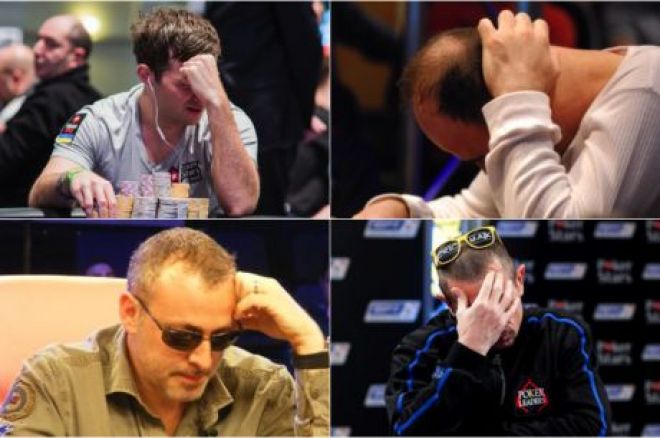
Have you ever wondered why you can play well one day and poorly the next? Many poker players feel like they are on a performance roller coaster where one minute they are on top of their game and the next on the bottom.
Every seasoned poker player knows that there is a ton of variance in the game and that poker is really a game of the long haul. Being mentally able to deal with the ups and downs of the game is one of the hallmarks of a great player. All great players exhibit something called mental toughness.
Simply stated, mental toughness is the ability to play your best in any situation. Mental toughness becomes especially important when you are facing problems, obstacles, adversity, or failure — either in your personal life or at the table. Having mental toughness allows you to play more consistently, regardless of challenges that might arise at the table or elsewhere.
We are beginning to amass evidence that ups and downs in poker performance are associated with psychological ups and downs. When mental toughness is low, you are more likely to play poorly. When mental toughness is high, playing well is almost certain. Your goal as a player is to create a mentally tough mindset that helps you to perform more consistently no matter what challenges you face.
The good news is that mental toughness is not something with which we are born. Rather, it's something that we can develop. By diligently practicing and exhibiting the following traits, it is possible to increase mental toughness. Mentally tough poker players are:
- Self-motivated. The mentally tough poker player is self-directed and pushes himself towards success. He doesn't have to be forced to work at his game. He loves the game and enjoys the work. When faced with adversity, he is motivated to do whatever it takes to triumph.
- Realistically positive. Mentally tough players are able to keep an optimistic attitude while still being realistic about what needs to be improved upon.
- Emotionally controlled. The best players are in control of their emotions. Poor emotional control leads to poor decision-making. Anger, frustration, and fear must be controlled or they will end up controlling you.
- Calm under pressure. Don't avoid pressure situations. See them as challenges to be conquered. When the odds are against you, remain calm and see it as an opportunity to show what you are capable of.
- Determined. You must have a strong will to succeed in this game. Be relentless in pursuit of your goals and refuse to give up. Take all setbacks in stride and be determined to learn from your mistakes.
- Focused. To become a great player you must be capable of long periods of intense concentration. Being able to tune into what is important while letting go of what isn't is a sign of mental toughness.
- Self-confident. If you want to increase your mental toughness, work on your self-confidence. A self-confident player has a strong belief in herself and her ability to perform well. She doesn't fall victim to self-defeating thoughts.
- Not making excuses. To become a truly dominant force in the game, you must refuse to make excuses. The mentally tough player takes full responsibility for his play and any mistakes made. He knows that by taking this attitude, he can control his own destiny.
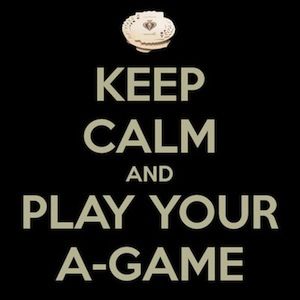
As you can see being mentally tough is actually a tall order. It requires quite a bit of mental training and work on your part. Once you fully understand that your greatest opponent is you, then you can begin the process of fully developing your mental toughness.
Take control of your mind and focus on always playing the best that you can no matter what. If you give your best effort, maintain a positive attitude throughout, and accept full responsibility for every session, you can feel good about your play and your mental game.
Dr. Tricia Cardner is the author of Positive Poker with Jonathan Little, available in paperback, audio, and e-book formats via D&B Poker as well as through the PokerNews Book Section. Follow her on Twitter @DrTriciaCardner.
Get all the latest PokerNews updates on your social media outlets. Follow us on Twitter and find us on both Facebook and Google+!
In this Series
- 1 Psychological Habits of Successful Poker Players: Choosing Excellence
- 2 Psychological Habits of Successful Poker Players: Total Commitment
- 3 Psychological Habits of Successful Poker Players: Emotional Control
- 4 Psychological Habits of Successful Poker Players: Mental Toughness
- 5 Psychological Habits of Successful Poker Players: Self-Discipline
- 6 Psychological Habits of Successful Poker Players: Goal Setting
- 7 Psychological Habits of Successful Poker Players: Self-Confidence

